What is the Pope doing with this Anglo Catholic Gambit?
I think for those that watch closely what Pope Benedict says on a weekly basis, that read his Papal statements, and have read his works in his pre Pope days it is very apparent. This journalist gets it!!! Here is a part (the bolding is mine). My thoughts after the excerpt.
What Is at Stake?
If one looks at these meetings in the context of recent events, the essential point is this: Benedict XVI, though now 82, is moving on many different fronts with great energy in a completely unexpected way, given his reputation as a man of thought, not of action. (We are going to have to revise our understanding of his pontificate.)
He is clearly reaching out to reunite with many Christian groups: the Lefebvrists, as these meetings show, but also Anglicans, the Orthodox, and others as well.
He seems to be trying to make Catholic Rome a center of communion for all Christians.
This activity, occurring at an accelerating speed over recent months, looks almost like a "rallying of the troops" before some final, decisive battle.
The activity is critically important, in this sense, for our current global "culture war," especially our anthropology (can man be anything our technology can make him, or are their moral limits we should observe?), our sexuality and sexual behavior (how important is our sexual identity, how important are our gender roles?), and our traditional family structures (are these now outmoded, perhaps even to be completely discarded?).
Now, 44 years after the close of the Second Vatican Council, Benedict XVI evidently has committed some of his best men to seek unity with the most conservative wing of the Catholic Church, the Society of St. Pius X, and by extension, all so-called "Traditionalist" Catholics.
The plan is very ambitious: to go step by step through all of the great, controversial doctrinal issues of the post-conciliar period. This includes religious freedom, it includes ecumenism, it includes the Church's teaching on Judaism and the Jews, it includes the new Mass vs. the old Mass and the role of the priest of the laity in the liturgy -- all the great issues of the Council.
Benedict will be watched very closely here by progressives, who seem to be a bit off-balance, wondering what Benedict is really after.
And he will be watched by the Anglicans, some of whom are considering entering into communion with Rome, overcoming a schism which dates from the Protestant Reformation in the 1500s, 500 years ago.
And he will be watched by the Orthodox, some of whom are also thinking of overcoming the "Great Schism" which dates to 1054, as they have stated in recent days.
And he will be watched very closely here by representatives of the world Jewish community, some of whom are wondering which direction Benedict and the Church he leads will take with regard to Catholic teaching regarding Judiasm and the Jewish people.
In short, many eyes are now on Benedict, wondering what he really intends here.
The answer seems simple enough: Benedict is trying energetically to "get his house in order."
But which house?
On one level, it is the Christian Church -- a Christian Church under considerable pressure in the highly secualrized modern world.
In this "house," this "ecclesia Dei" ("church of God" or "community of God"), dogmas and doctrines, formulated into very precise verbal statements, are held as true. These verbal formulas are professed in creeds. Benedict is seeking to overcome divisions over the content of these creeds, these doctrinal formulas, in order to bring about formal, public unity among separated Christians.
He is trying to find unity not only with the Lefebvrists (and all Traditionalists within the Church) but also, as we have seen in recent days, with the Anglicans and the Orthodox Churches.
So this dialogue with the Lefebvrists must be seen in the context of multiple dialogues, all occurring at once: Catholic Traditionalists, Protestant Anglicans, the Orthodox Churches.
One might almost say this pontificate is become one of "all dialogue, all the time."
But on a second level, considering world events and the evolution of the world's economy and culture, something else is also at stake.
Benedict is rallying his troops. He is trying to reunite all those factions and denominations and groups in the West that share common beliefs in the eternal destiny of human beings, in the sacredness of human life (since human beings are "in the image and likeness of God"), in the existence of a moral standard which is true at all times and in all places (against the relativism of the modern secular culture), in the need for justice in human affairs, for the rule of right, not might.
And so he is doing his best, in what seems perhaps to be the "twilight of the West," to build an ark, centered in Rome, to which all those who share these beliefs about human dignity may repair.
And this means that what Benedict is doing in this dialogue which got underway today is also of importance to Jews, to Muslims, and to all men and women of goodwill. Mankind seems to be entering a new period, a period in which companies and governments may produce, even for profit, "designer humans," a period of resource wars, a period of the complete rejection of the traditional family unit.
Benedict, from his high room in the Apostolic Palace, seems to be trying to rally the West in the twilight of an age, so that what was best in the West may be preserved, and shine forth again after the struggles of our time are past.
Benedict has two concerns. First he views the term Church in a most traditional Catholic sense. Let us recall the controversial and misunderstood statement issued by the Vatican that was a follow up on his past work under John Paul the II. That is Responses to Some Questions Regarding Certain Aspects of the Doctrine on the Church.
The fifth question asks why the ecclesial Communities originating from the Reformation are not recognised as ‘Churches’.
In response to this question the document recognises that “the wound is still more profound in those ecclesial communities which have not preserved the apostolic succession or the valid celebration of the eucharist”.[13] For this reason they are “not Churches in the proper sense of the word”[14] but rather, as is attested in conciliar and postconciliar teaching, they are “ecclesial Communities”.[15]
Despite the fact that this teaching has created no little distress in the communities concerned and even amongst some Catholics, it is nevertheless difficult to see how the title of “Church” could possibly be attributed to them, given that they do not accept the theological notion of the Church in the Catholic sense and that they lack elements considered essential to the Catholic Church.
In other words in Pope Benedict view ,and indeed in the Catholic / Orthodox/ Anglo Catholic world, one to be a Church must have Apostolic Succession and well Eat Jesus. Benedict has made to the determination as to Anglo Catholics that they will not be able to make the Anglican community more "Catholic" . In fact the Anglo Catholics are in danger of being pushed out altogether.
But what about these other Christian communities. IE the Protestants.
In the same document:
In saying this, however, it must be remembered that these said ecclesial Communities, by virtue of the diverse elements of sanctification and truth really present in them, undoubtedly possess as such an ecclesial character and consequently a salvific significance.
Benedict other aim is well to make the Protestant well more Protestant according to their tradition. A tradition that is shared with the "Church". 99 percent of which is the Nicene Creed.
The Pope views on this can be seen in remarks he made at the Ecumenical Prayer meeting in New York on his Papal visit. The full text which is worth reading in full is at Ecumenical Prayer Service at St Joseph's Parish in New York (April 18, 2008)
Here is the important part:
of grave concern is the spread of a secularist ideology that undermines or even rejects transcendent truth. The very possibility of divine revelation, and therefore of Christian faith, is often placed into question by cultural trends widely present in academia, the mass media and public debate.
For these reasons, a faithful witness to the Gospel is as urgent as ever. Christians are challenged to give a clear account of the hope that they hold (cf. 1 Pet 3:15).
Too often those who are not Christians, as they observe the splintering of Christian communities, are understandably confused about the Gospel message itself. Fundamental Christian beliefs and practices are sometimes changed within communities by so-called “prophetic actions” that are based on a hermeneutic not always consonant with the datum of Scripture and Tradition.
Communities consequently give up the attempt to act as a unified body, choosing instead to function according to the idea of “local options”. Somewhere in this process the need for diachronic koinonia – communion with the Church in every age – is lost, just at the time when the world is losing its bearings and needs a persuasive common witness to the saving power of the Gospel (cf. Rom 1:18-23).
Faced with these difficulties, we must first recall that the unity of the Church flows from the perfect oneness of the triune God. In John’s Gospel, we are told that Jesus prayed to his Father that his disciples might be one, “just as you are in me and I am in you” (Jn 17:21). This passage reflects the unwavering conviction of the early Christian community that its unity was both caused by, and is reflective of, the unity of the Father, Son, and Holy Spirit. This, in turn, suggests that the internal cohesion of believers was based on the sound integrity of their doctrinal confession (cf. 1 Tim 1:3-11).
Throughout the New Testament, we find that the Apostles were repeatedly called to give an account for their faith to both Gentiles (cf. Acts 17:16-34) and Jews (cf. Acts 4:5-22; 5:27-42). The core of their argument was always the historical fact of Jesus’ bodily resurrection from the tomb (Acts 2:24, 32; 3:15; 4:10; 5:30; 10:40; 13:30). The ultimate effectiveness of their preaching did not depend on “lofty words” or “human wisdom” (1 Cor 2:13), but rather on the work of the Spirit (Eph 3:5) who confirmed the authoritative witness of the Apostles (cf. 1 Cor 15:1-11). The nucleus of Paul’s preaching and that of the early Church was none other than Jesus Christ, and “him crucified” (1 Cor 2:2). But this proclamation had to be guaranteed by the purity of normative doctrine expressed in creedal formulae – symbola – which articulated the essence of the Christian faith and constituted the foundation for the unity of the baptized (cf. 1 Cor 15:3-5; Gal 1:6-9; Unitatis Redintegratio, 2).
Benedict is worried that in the Protestant faiths there is a worse threat than perhaps the Reformation . That is under the supposed banner of Christianity that various Christian Communities are becoming vehicles of false teaching that undermines the very basics of the Christian message.
Benedict dual track here (making the Catholic Church more Catholic and the Protestant World More Creed Protestant) can be seen in recent actions. While Benedict was in the final stages of the Anglo Catholic discussions he was working the Protestant angle. A few weeks ago the Vatican within hours was quick to endorse a plan by the Archbishop of Canterbury "two track church"
For how the Vatican is playing a active road on the Protestant side of the equation see this excellent article that explains the background on this at Anglicans at Risk of Schism. The Two Roads of the Archbishop of Canterbury
Strangely people have not linked the Papal actions. This will play out no doubt in other Christian communities . I expect the Pope will look toward the mess the Lutherans are in next and help facilitate in any way he can that Orthodox Luther nans do not become extinct.
Benedict knows in the end in the coming decades we all need each other in this fight to the death.
So expect more of this. Pope Benedict wants to deal in honest dialogue with the Southern Baptist Albert Mohler's of the world and his like Minded traditional Protestant kin and less with the current Primate of the American Episcopal Church of the World and her kin.
Tuesday, October 27, 2009
Pope Benedict Wants to Make The Church More Catholic and Protestants More Protestant
Posted by
James H
at
10/27/2009 11:11:00 AM
![]()
Labels: anglican, anglicanism, Catholic, Pope Benedict, Protestant, vatican
Subscribe to:
Post Comments (Atom)


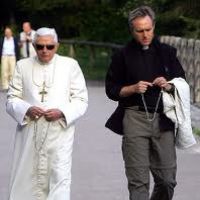

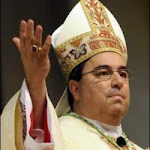



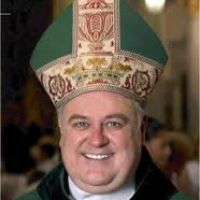
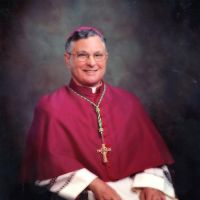
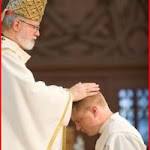
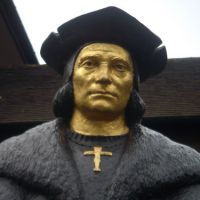
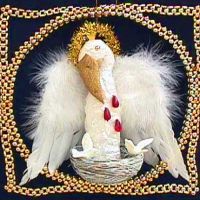
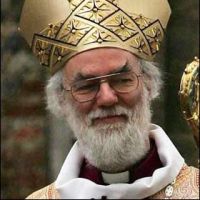
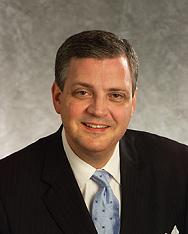
No comments:
Post a Comment